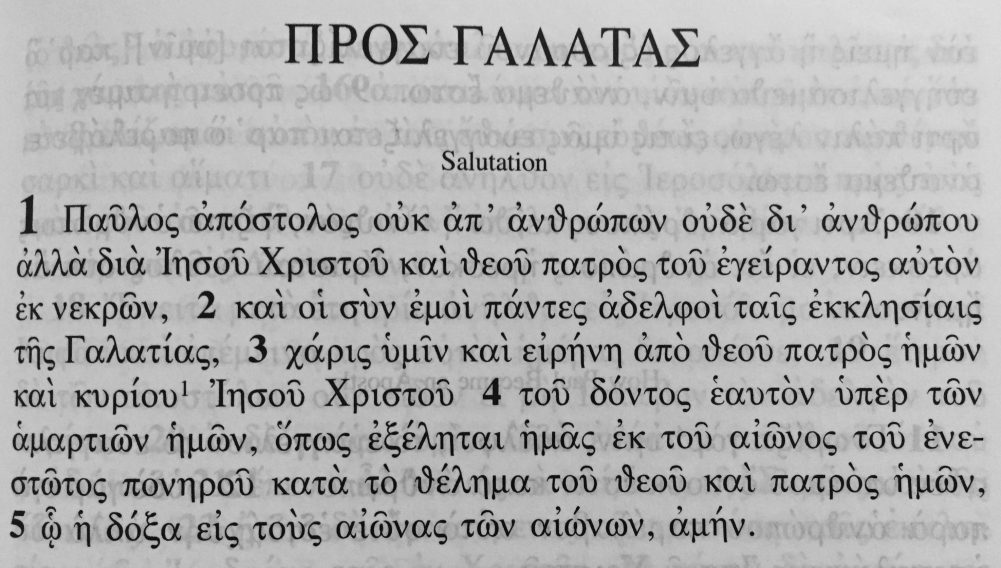Law and gospel are two different words. They bring different news. This is for sure. Paul notes, however, that this does not make them incongruous or contrary. They have a chronological and logical relationship to each other in the lives of believers. They each serve a purpose. One diagnoses, the other heals. One exposes, the other absolves. One speaks wrath, the other consolation. Importantly, none of this is an abstraction. It happens concretely in the life of the believer. The law sets forth the sad reality and consequences of sin. The gospel forgives sin. And because this side of the casket we remain sinner-saints, both words remain necessary for the Christian. The baptized in their weakness daily sin and their sins are daily drowned.
In his Galatians commentary, Luther notes the usefulness of the law. It leads us to recognize our condition and it discloses our sin and increases it (Paul explains this elsewhere). The law prepares sinners for Christ. Unless the law functions as it must, as God would have it vis-à-vis the sinner, the gospel will be dismissed or obfuscated. The sick need a doctor and the law makes our sickness plain. While this is so, the promise is not of the law or bound to the law. The promise depends solely upon the grace, mercy, and faithfulness of God in Christ. The law was never intended to do what the promise does: save. The promise gives salvation. Christ and His forgiveness are gifts, all gift. The gospel sets free those imprisoned by sin, under the law’s condemnation, incapable of meeting its demands, not because of a shortcoming in the law, but because of our lost, fallen condition.
The Christian Church fails in its task when it neglects either of these two words of God. Only mischief–in doctrine, practice, and life–results when this happens, when these two words are neglected or confused. We do well to remember, then, the role and place of both of these words, law and gospel. They both relate to sinners, to me, but with different results. We rightly stand condemned, under God’s wrath, ashamed and hopeless, under God’s law, because of sin—original sin and the sins we’ve committed in thought, word, and deed. God would not have us stop there, though. He didn’t send His Son for us to be condemned, but for good news to be proclaimed, that Christ was crucified for sinners, condemned sinners, for you and me. This is the word that gives life, the gospel, and this is the Church’s greatest gift, received in Word and Sacrament, proclaimed to those inside and outside of its doors. Here is freedom and life, ransom and pardon. This is our joy, today, tomorrow, and everyday, to live freely in a world given back to us, confident that God’s promise is dependent upon no one but Him and that He is so serious about it He marked it with His cross upon Calvary and upon our heads in Baptism.

